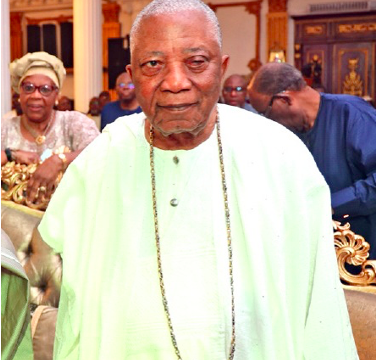A quiet transformation is unfolding in Nigerian Army barracks, especially those tucked away in remote border communities where living conditions are often the toughest. From better schools to improved hospitals and housing, these legacy projects are changing not just how soldiers and their families live, but how they feel about the institution they serve. At the heart of this shift is the Chief of Army Staff (COAS), Lieutenant General Olufemi Oluyede, whose “Soldier First” concept places the welfare of personnel and their families at the very centre of his leadership, Chiemelie Ezeobi writes
In border communities where living conditions are usually the toughest, a ray of hope was recently re-ignited for the families of soldiers of the Nigerian Army, who reside in barracks in those areas.
While executing their sworn responsibility to protect the territorial integrity of Nigeria, the home front is more often than not neglected. But the Chief of Army Staff (COAS), Lieutenant General Olufemi Oluyede, is changing the status quo with his “Soldier First” concept, whereby the holistic welfare of personnel is sacrosanct.
Soldier First Concept
General Oluyede’s philosophy is simple: “Soldier First.” For the people living in barracks tucked away in the country’s most difficult corners, those two words have now come alive in the most human way possible.
The COAS has stressed repeatedly that it is not just about soldiers fighting wars, but about their children going to good schools, their wives having proper hospitals, and their families living with dignity.
By placing the soldier and his family at the centre of policy, General Oluyede has begun reshaping the relationship between the Army and its rank-and-file in ways that go beyond the battlefield.
The Miracle at Ogoja
When the sound of sirens faded at the gates of Godwin Abbey Cantonment in Ogoja, Cross River State, there was a hush of disbelief. Soldiers and their families craned their necks, whispering, “Is it really him?”
Yes, it was. The Chief of Army Staff, Lieutenant General Olufemi Oluyede, had come not to the big parade grounds of Abuja or Lagos, but to a remote barracks that many felt had been long unvisited by a very senior general of his cadre.
For wives who had raised children in classrooms without proper furniture, for soldiers who endured years of service in silence, and for little children who had never seen the Army Chief in the flesh, that moment felt almost unreal.
“He came to us,” one soldier’s wife said, fighting back tears. “For years, we felt invisible. Now we know our sacrifices matter.”
At Ogoja, the Army Chief didn’t just sit for handshakes and salutes. He walked through dusty classrooms with broken desks, poked his head into hospital wards, and even checked old water sources that once served hundreds of families.
What followed was not a long speech but swift action. Right there, he gave orders for schools to be rebuilt, hospitals refurbished, and new water facilities provided. Construction began almost immediately.
For families who had known nothing but neglect, this visit was a turning point. Mothers smiled at the thought that their children would soon sit in bright classrooms. Fathers, hardened by years of duty, confessed that it felt good to know their families were finally being seen.
“He listened to us,” said Corporal James, a father of three. “Not as a commander speaking to subordinates, but as a human with passion who understands our struggles.”
Across the Barracks
General Oluyede’s leadership style is defined by his willingness to go where only few have gone before. His itinerary has taken him across remote barracks, border towns, and forgotten corners of the country, places far from the limelight where conditions are often the toughest.
At the 130 Battalion / 341 Artillery Regiment in Ogoja, his presence lifted spirits. In Port Harcourt, he inaugurated renovated accommodation in the barracks of 6 Division, bringing long-overdue relief to troops and their families. In Yenagoa, he stood before soldiers of 16 Brigade, addressing them not just as their commander, but as someone determined to honour their service.
In Shendam, Plateau State, soldiers witnessed history as it was the first time ever that a Chief of Army Staff visited their community. At Dutsinma in Katsina State, he also met with troops, reinforcing his message of care and commitment.
Beyond these, his itinerary has visits to barracks in Shandam, Serti, Takum, Shaki, Nguru, Ikom, Owode, and Ikenhua. Each stop is more than symbolic. He listens to complaints, inspects facilities, and leaves behind promises backed by action. From better schools to improved hospitals, these legacy projects are changing not just how soldiers live, but how they feel about the institution they serve.
Perhaps the most striking outcome is not the new buildings or the directives given. It is the rekindled sense of dignity among soldiers and their families. For once, they feel seen, valued, and respected by the very top of the chain of command.
As one young soldier’s daughter in Ogoja put it after shaking the COAS’s hand: “I will never forget this day. I now know my father’s work matters.”
Beyond the Battles
In a profession often defined by discipline, strategy and command, General Oluyede is carving out a different kind of legacy, one that is deeply human. By showing up, listening, and acting, he is proving that military leadership is not just about winning battles, but about honouring the people who fight them.
In the quiet corners of Nigeria’s almost forgotten barracks, hope is rising again, carried not by orders shouted across parade grounds, but by the steady steps of a General who chooses to walk with his soldiers, side by side.


















Leave a comment